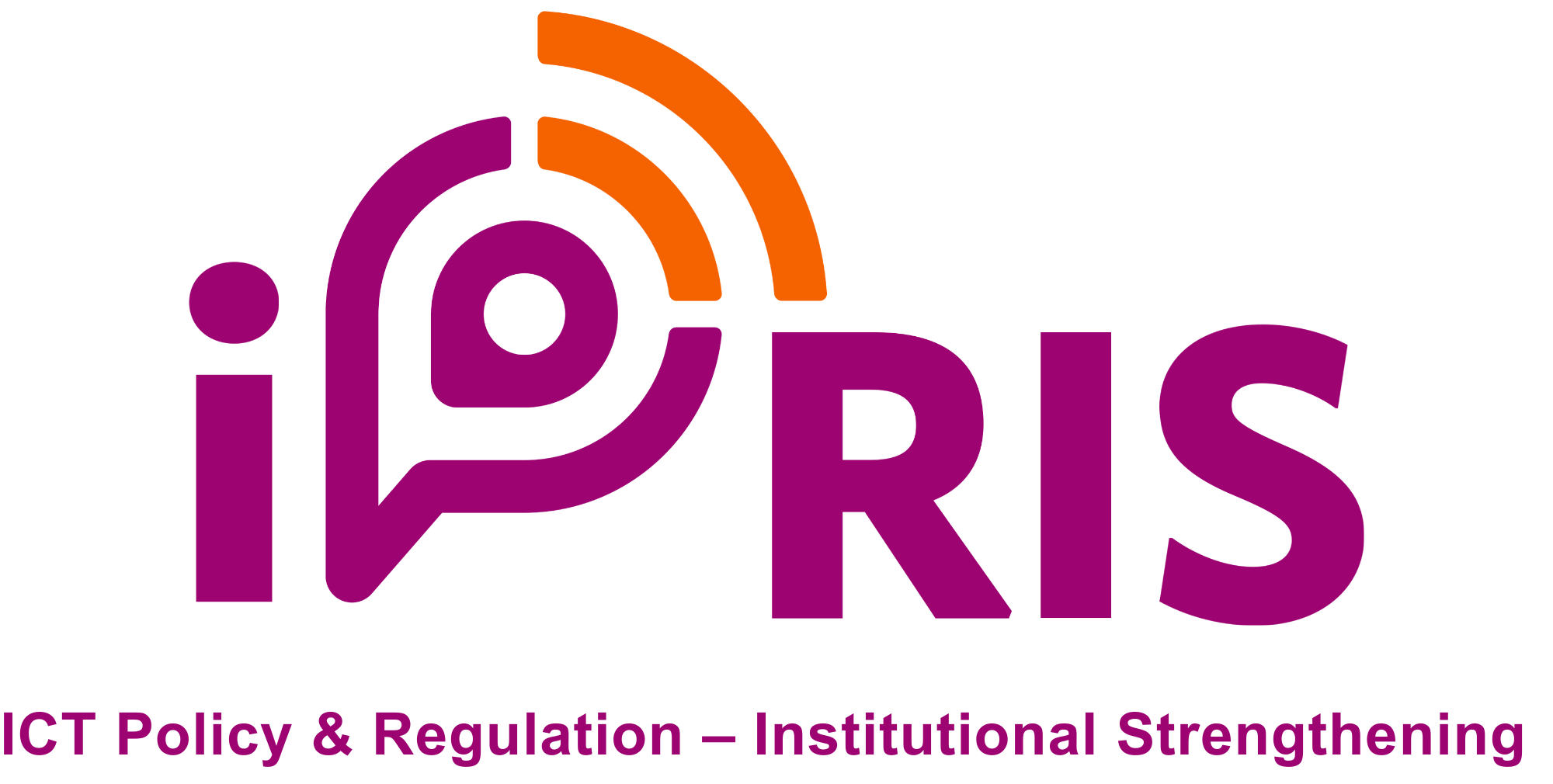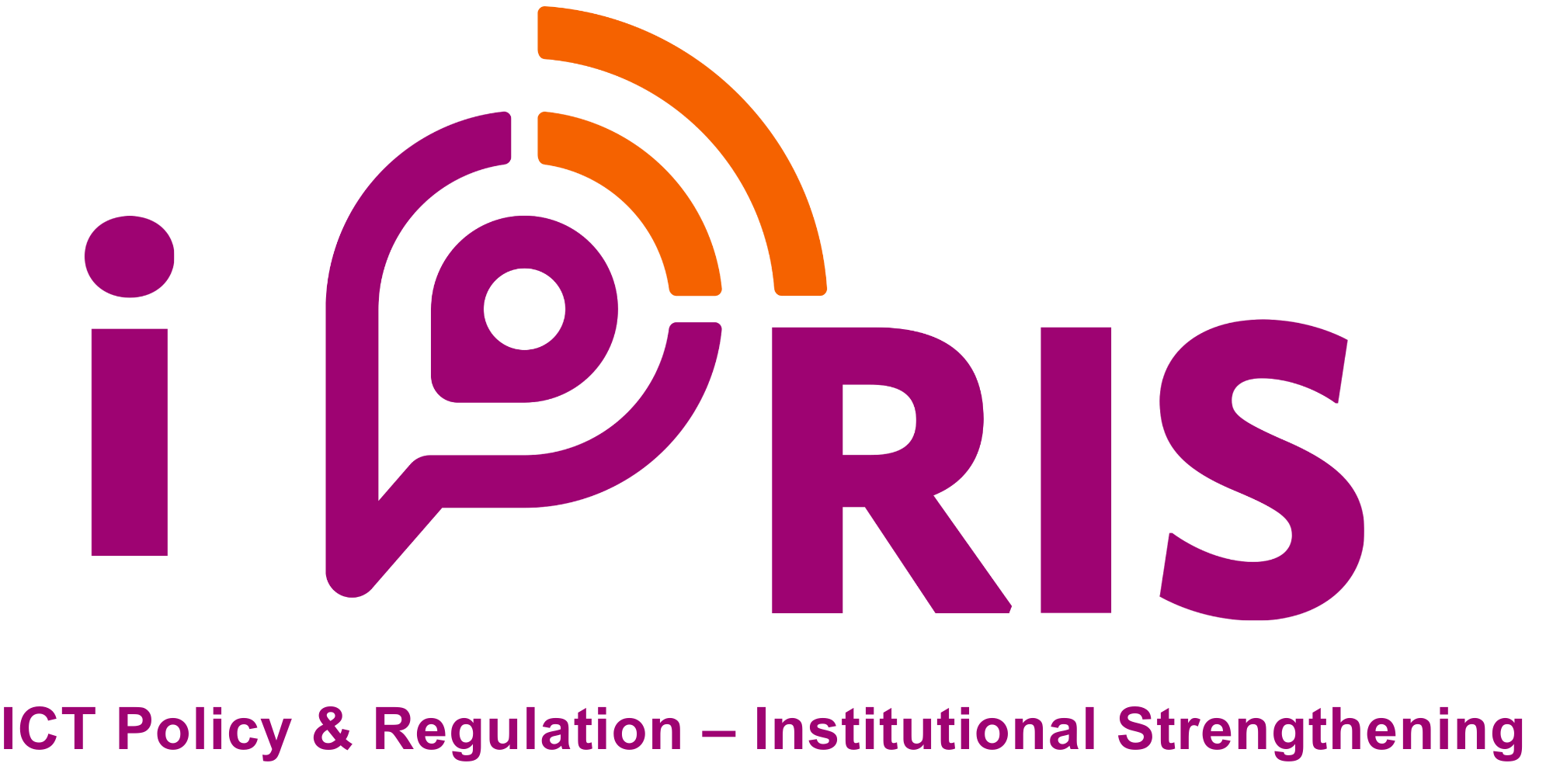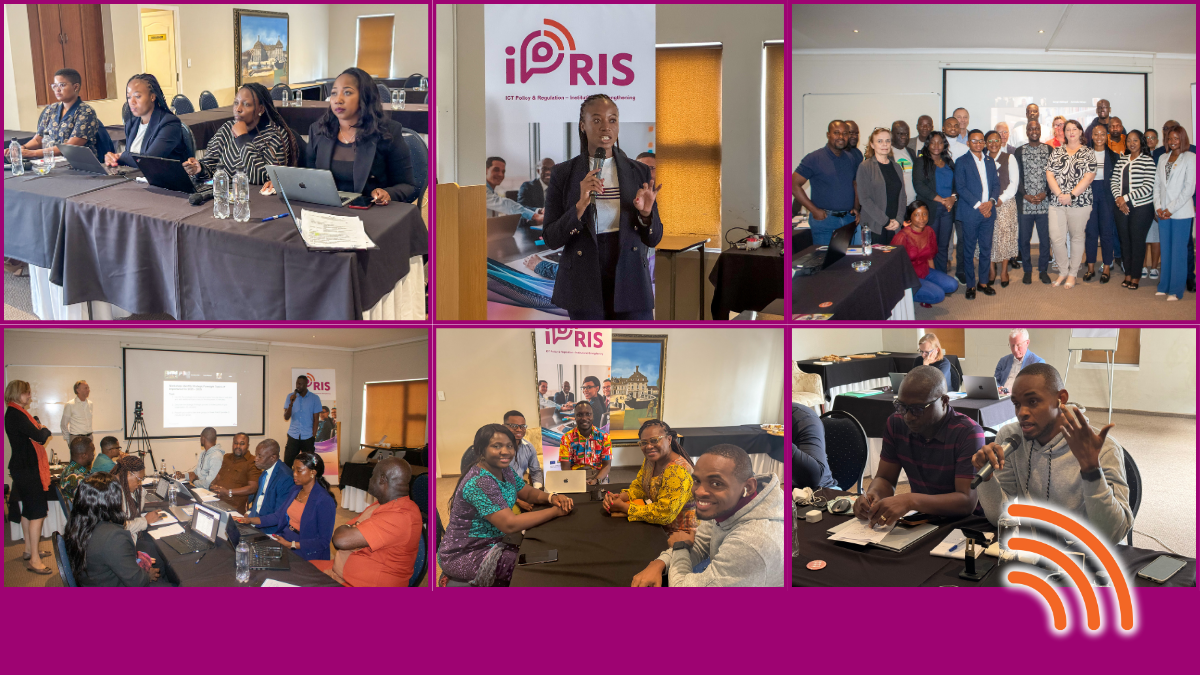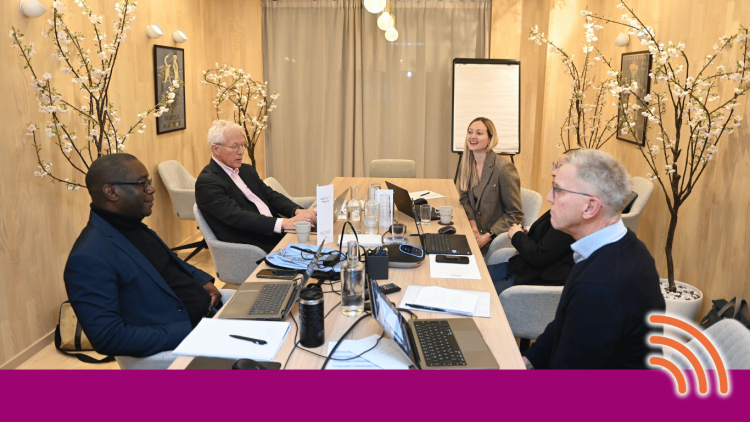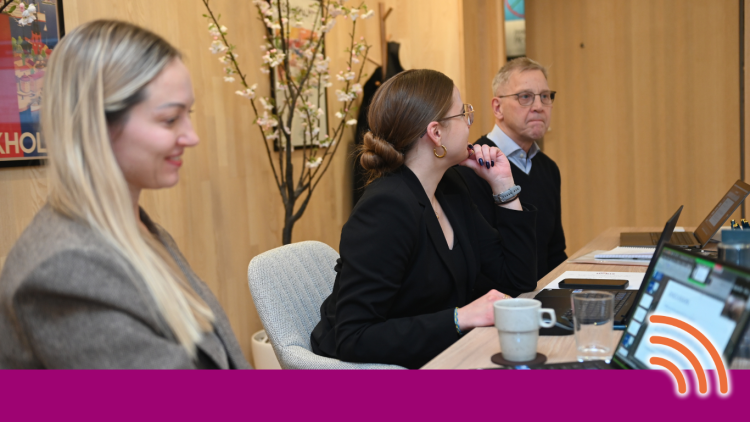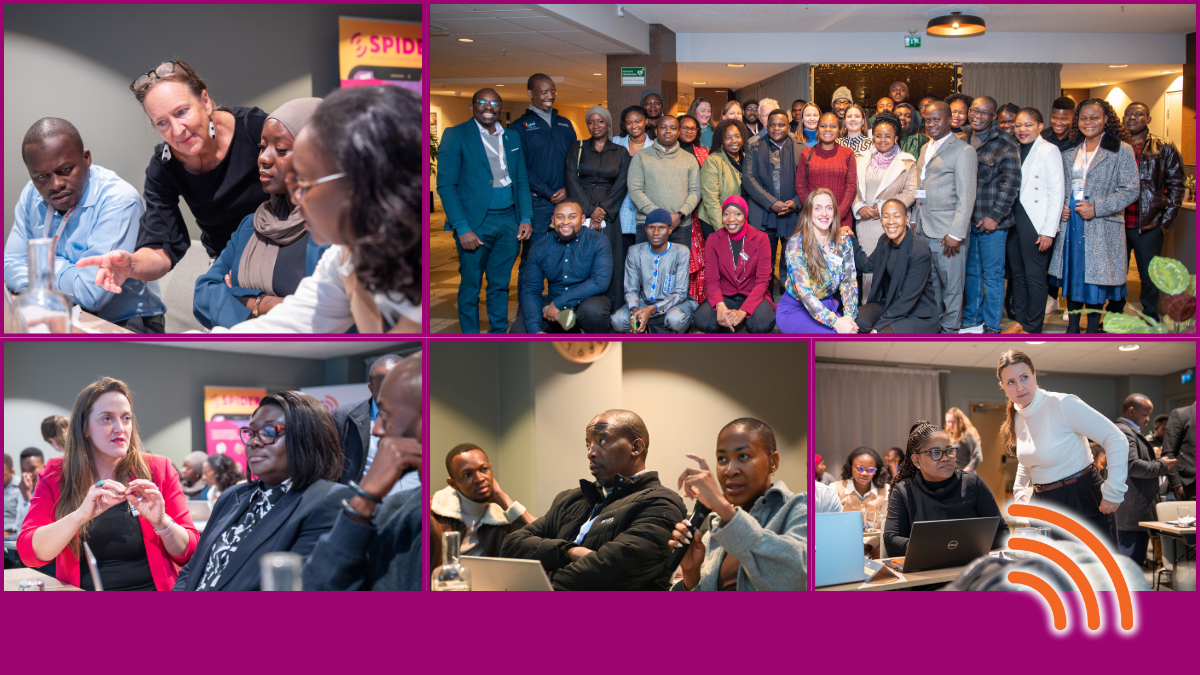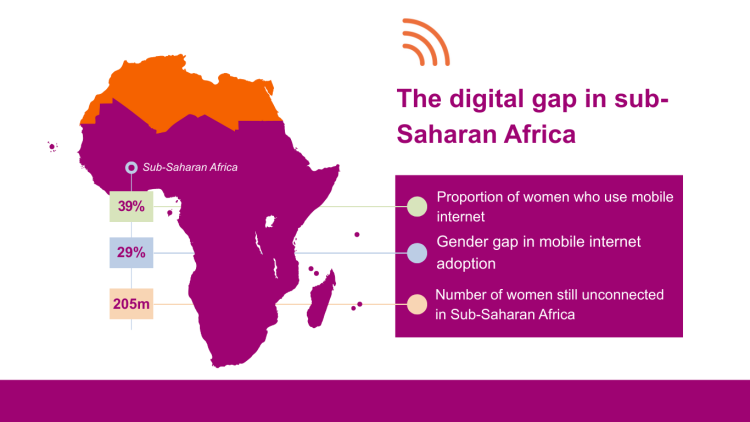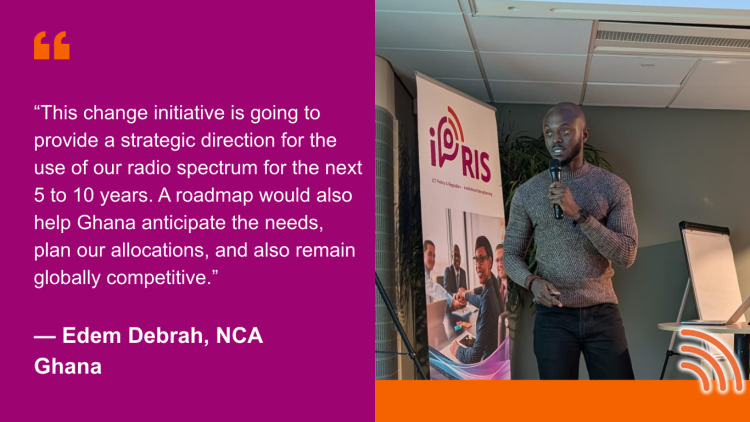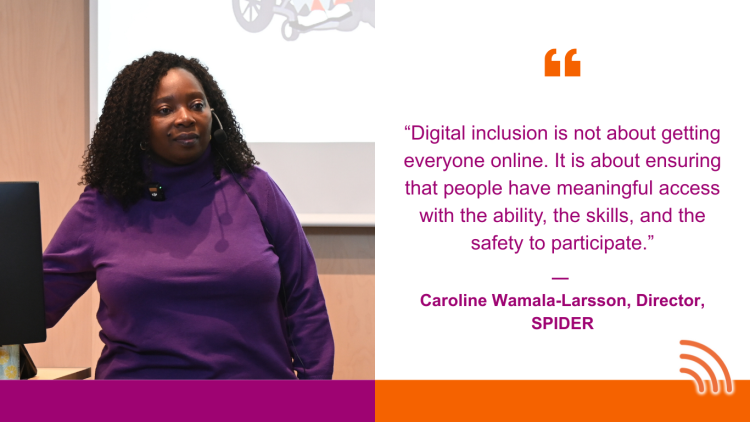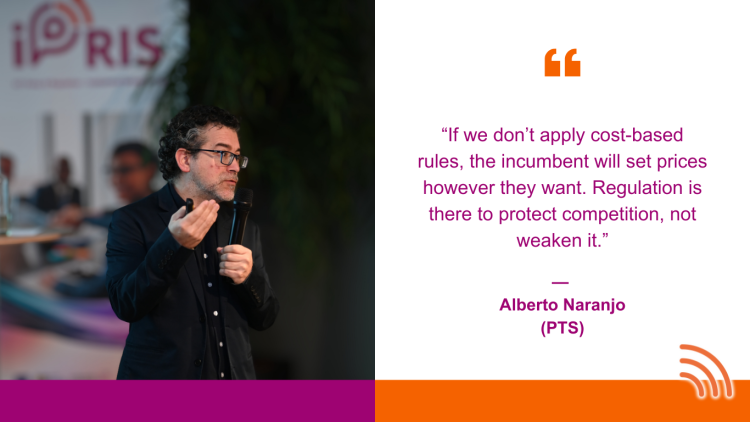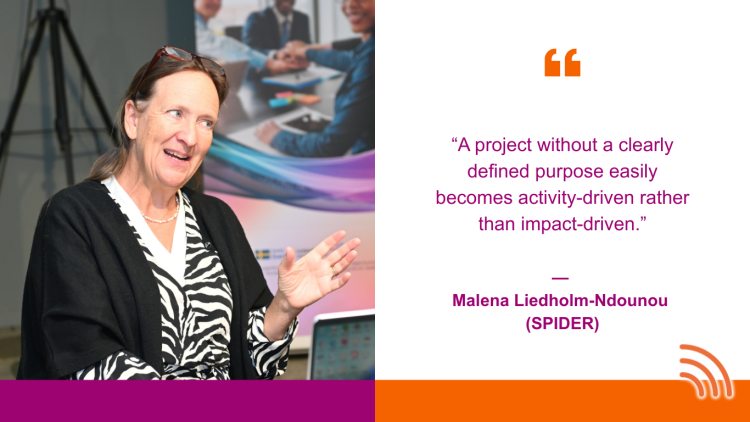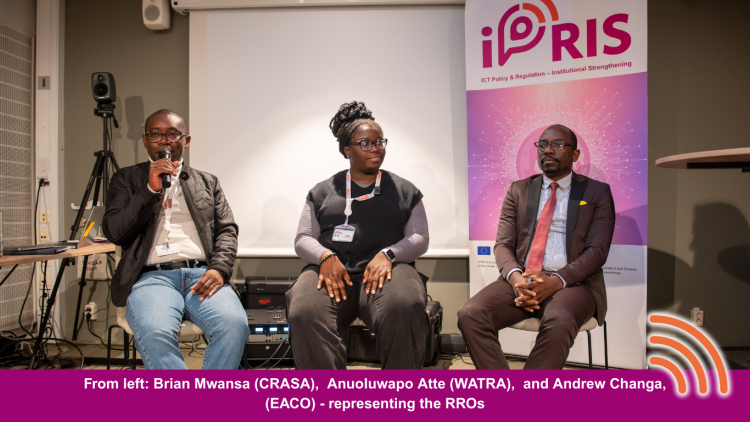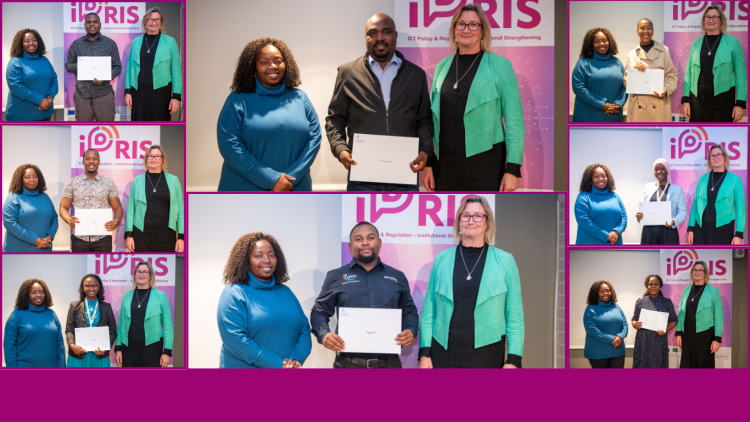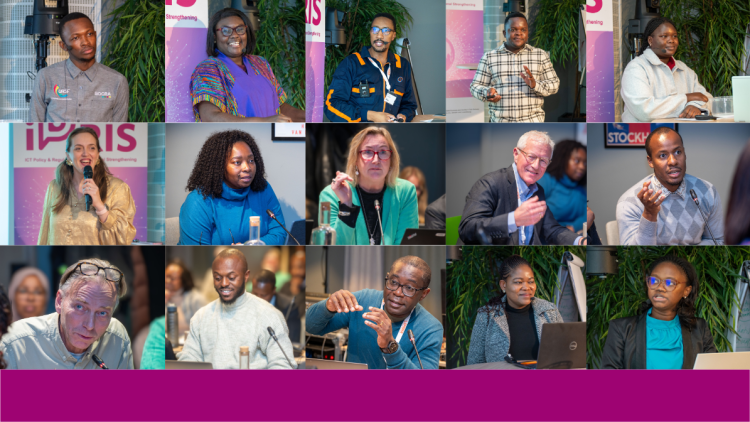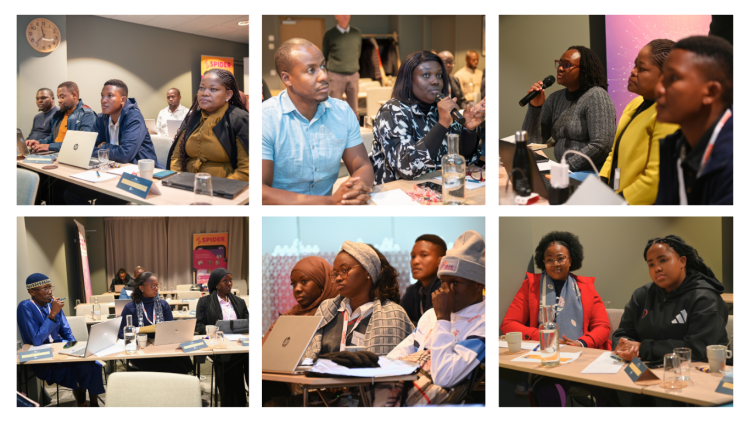Closing a full cycle of change: iPRIS fourth cohort wrap-up
The wrap-up session of the fourth iPRIS cohort on the 16th of December 2025 marked the end of a one-year institutional-strengthening cycle for the participating National Regulatory Authorities (NRAs). The moment was very special: as the cohort finished its cycle, iPRIS itself celebrated two years of implementation, two years of assisting regulators to go from learning to delivery, and from ambition to institutional change.
The teams of regulators from Kenya, Namibia, Zimbabwe, Liberia, South Sudan, and Ghana were gathered together. It was a wrap-up session and a reflection point. The session revealed the capacity regulators achieved in very complex institutional settings, how they worked around constraints, and the iPRIS methodology's practical value in capacity building, translated into concrete regulatory outcomes. The team had initially met in Namibia in early 2025 to discuss progress on change initiatives (CIs), after their first round in the iPRIS cycle in Sweden in November 2024.
Read about the cohort’s discussions and activities in Namibia here
From peer-learning to achievement
CIs, the unique activities in the regulator’s scope that each country had decided to work on, were the point of discussion. The focus was on core regulatory functions that are central to resilient digital ecosystems: the management of numbering resources, the governance of spectrum, SIM registration and KYC enforcement, and the institutional processes for consultation and approval.
There was a difference in the country context, but a common pattern emerged. The teams were able to:
- Develop or modify regulatory guidance based on evidence and stakeholder input.
- Carry out analyses to identify where existing frameworks are weak and which reform areas should be prioritised.
- Create detailed project plans that involve timelines, risk identification, and mitigation strategies.
- Involve a lot more people within the organisation, as well as stakeholders outside the organisation, in a more systematic and transparent way.
In several cases, draft guidelines and frameworks were completed and internally reviewed, with final approvals and publication pending institutional processes beyond the teams’ direct control. Rather than signalling stalled progress, these realities underscored a critical insight of the cohort: sustainable regulatory reform is as much about navigating governance systems as it is about technical design.
Country reflections: progress shaped by context
Strengthening numbering governance and future service readiness (Kenya, Zimbabwe)
Kenya and Zimbabwe anchored their Change Initiatives in the reform of national numbering frameworks to ensure readiness for evolving technologies and services.
Kenya focused on enhancing the telecommunications numbering resource administration and management framework, aiming to improve efficiency, transparency, and long-term sustainability in numbering allocation. The initiative included revising regulatory frameworks, clarifying administrative procedures, and engaging stakeholders to ensure alignment with market needs and institutional approval processes.
Zimbabwe’s Change Initiative is centred on the revision of the national numbering plan to include IoT and machine-to-machine (M2M) numbering. The team conducted a gap analysis and developed draft implementation guidance, informed by consultations with operators and regional peers. The work positioned the regulator to anticipate future services better while highlighting the importance of targeted, technically informed stakeholder engagement.
Strengthening national cybersecurity preparedness (Namibia)
Namibia’s Change Initiative focused on developing national cybersecurity incident management guidelines. The work addressed the need for clearer roles, coordination mechanisms, and response procedures in the event of cyber incidents. Through internal coordination and structured planning, the team advanced draft guidelines while navigating institutional approval processes, reinforcing the importance of preparedness as digital services expand.
Spectrum management reform amid institutional transition (Liberia)
Liberia’s team focused on FM spectrum management, responding to interference challenges, unauthorised broadcasters, and outdated regulatory provisions. Despite leadership changes within the NRA during the project period, the team completed a comprehensive regulatory review, internal validation workshops, and stakeholder engagement, including direct discussions with radio stations. While the final publication of the revised guidelines is pending formal approval, the initiative has already strengthened internal coordination and built a shared institutional understanding of spectrum governance challenges.
Enhancing SIM registration and KYC enforcement through inter-agency coordination (South Sudan)
South Sudan’s Change Initiative focused on enforcing guidelines on SIM card registration and Know Your Customer (KYC) requirements to strengthen sector integrity and consumer protection. The team developed draft enforcement guidelines, conducted stakeholder consultations with mobile network operators and relevant institutions, and identified critical dependencies with civil registration authorities, security agencies, and law enforcement bodies. The initiative underscored the importance of inter-agency coordination, data protection considerations, and sustained leadership support. While final approvals and nationwide rollout are forthcoming, the regulatory foundations for more consistent SIM registration enforcement are now in place.
Promoting consumer protection and digital inclusion in border communities (Ghana)
Ghana’s Change Initiative addressed digital inclusion and consumer protection for residents of border towns, with a specific focus on educating users about preventing automatic roaming. The initiative responded to persistent challenges faced by border communities, including unexpected roaming charges and limited awareness of consumer rights. Through structured planning, internal coordination, and targeted stakeholder engagement, the team advanced education-focused interventions while applying iPRIS project management tools to strengthen delivery and sustainability beyond the cohort cycle.
Ghana’s contribution emphasised institutional strengthening rather than a single technical reform area. The team reflected on how the iPRIS project management tools, clear objectives, structured workplans, sequencing of approvals, and risk management, supported more disciplined internal coordination and delivery. The experience highlighted the value of change management, cross-departmental collaboration, and leadership engagement in sustaining reform momentum beyond the formal iPRIS cycle.
Shared lessons from a full iPRIS cycle
Across all presentations, several cross-cutting lessons stood out:
- Project discipline matters. Tools such as clear objectives, workplans, Gantt charts, and risk registers were repeatedly cited as new and valuable practices now embedded in day-to-day regulatory work.
- Stakeholder engagement must be deliberate. Direct dialogue consistently yielded better outcomes than purely written consultations, particularly on technical issues.
- Institutional processes shape timelines. Board calendars, procurement rules, and leadership transitions are not peripheral—they are central variables that must be planned for.
- Teamwork strengthens delivery. Cross-departmental collaboration improved ownership, continuity, and resilience when challenges arose.
These lessons reflect the core premise of iPRIS: that regulatory effectiveness depends as much on institutional capability and process as on technical expertise.
Sustaining momentum beyond the cohort
As the fourth cohort concludes its cycle, the focus shifts from completion to continuity. Several teams are advancing toward publication, validation workshops, and implementation phases, building on the structures established during iPRIS. For iPRIS, the wrap-up session also marked two years of supporting various regulators in strengthening institutions from within through practical learning, peer exchange, and structured change initiatives. The fourth cohort’s experience demonstrates that even within constrained environments, regulators can deliver meaningful reform when equipped with the right tools, support, and networks. As iPRIS enters its next phase with ongoing cohorts, the achievements and lessons of this cohort provide a strong foundation for deeper impact, regional learning, and sustained institutional change across the ICT regulatory landscape.
iPRIS is coordinated and implemented by SPIDER in strategic and technical partnership with the Swedish Post and Telecom Authority (PTS) and Institut luxembourgeois de régulation (ILR), as well as ARTAC, CRASA, EACO, and WATRA.
iPRIS is funded by the European Union, Sweden, and Luxembourg as part of the Team Europe Initiative “D4D for Digital Economy and Society in Sub-Saharan Africa” (Code: 001).
